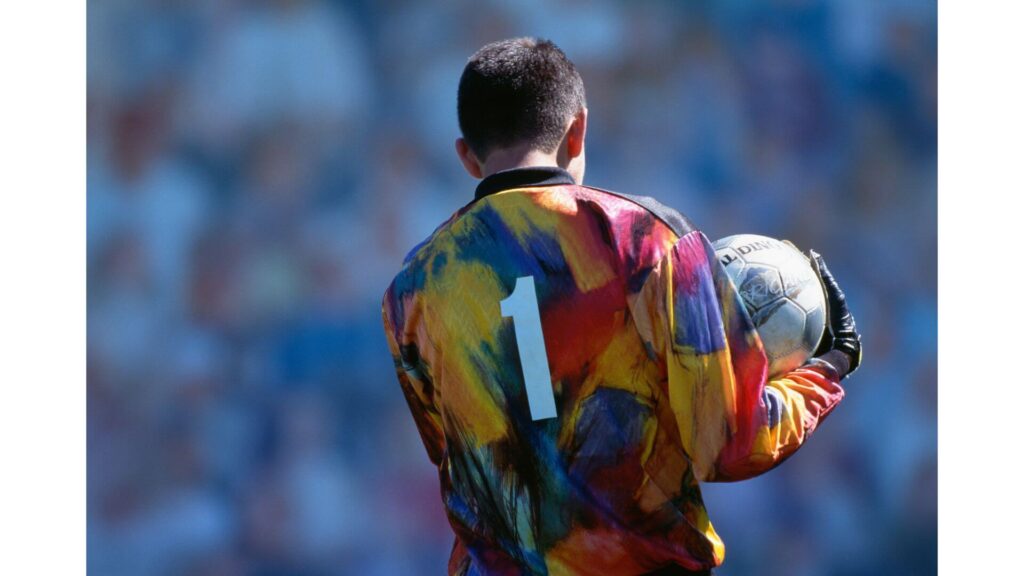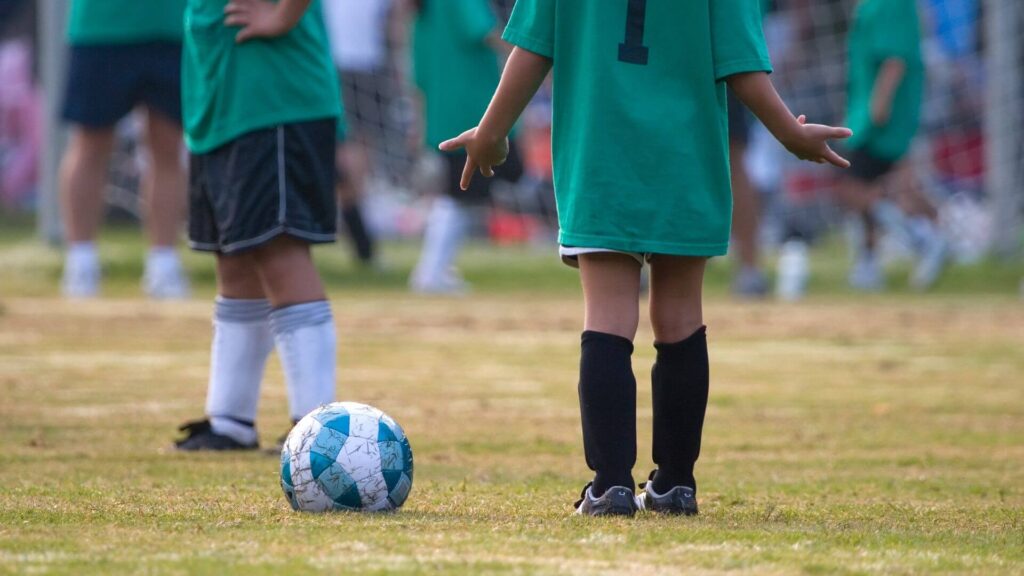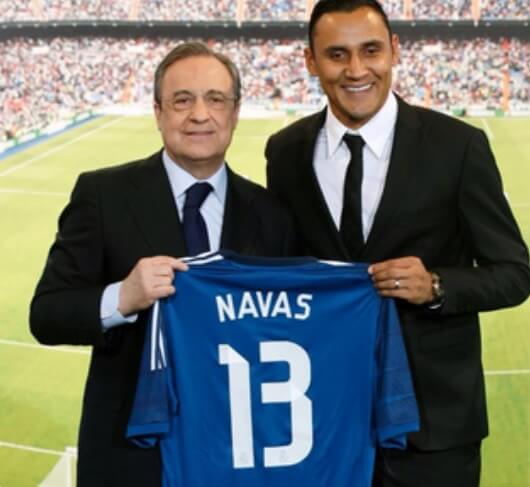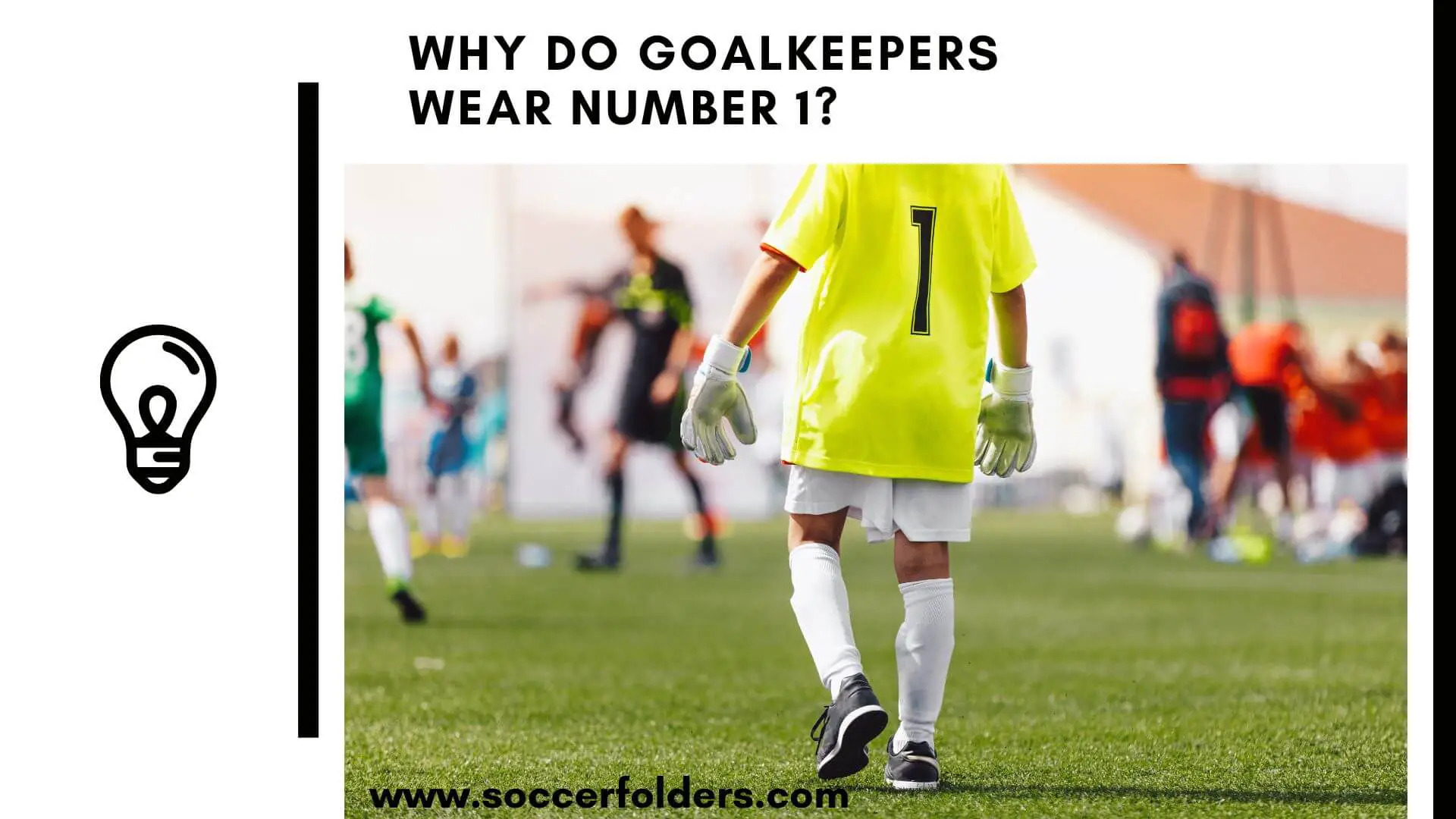If you’re a fan of football or soccer, you’ve probably noticed that the goalkeeper usually wears number 1 on their jersey.
But have you ever wondered why that is?
In this article, we’ll explore the history and significance behind this tradition and uncover the reasons why goalkeepers wear number 1.
Quick Navigation
- The History of Numbered Jerseys
- Why do Goalkeepers Wear Number 1?
- The Evolution of Goalkeeper Jerseys
- The Future of Goalkeeper Jerseys
- Can any Player Wear the Number 1 in Soccer?
- What is the most popular Goalie Number?
- Why do Goalkeepers Wear Number 13?
- Why do Goalkeepers Wear Number 16?
- Best Goalkeeper Numbers
- Some Goalkeepers with Number 13
- Wrap Up
The History of Numbered Jerseys
To understand why goalkeepers wear number 1, we first need to look at the history of numbered jerseys in soccer/football. The tradition of numbered jerseys started in the early 1900s, but it wasn’t until the 1930 World Cup that it became mandatory for teams to have numbered jerseys.
The first numbered jerseys were assigned based on the player’s position on the field.
For example, defenders were given numbers 2 to 6, midfielders 7 to 11, and strikers 12 to 18. This numbering system allowed referees and spectators to identify players quickly, which was especially important in big matches.
Over time, teams started to assign numbers based on player preference, skill level, and even superstition.
For example, players who scored a lot of goals might wear the number 9, while a player who wanted to intimidate their opponents might choose number 13.
Now that we understand the history of numbered jerseys, let’s dive into why goalkeepers wear number 1.
Why do Goalkeepers Wear Number 1?
Goalkeepers wear number 1 because it is traditionally associated with the position, denoting the importance of the role as the last line of defense for the team. The number 1 signifies leadership, confidence, and a strong presence, which are crucial traits for a goalkeeper.
Additionally, wearing the number 1 jersey can help distinguish the goalkeeper from the rest of the team and make them easily identifiable on the field.
As the last line of defense for the team, the goalkeeper is responsible for stopping shots and keeping the ball out of the net. They need to be a strong and decisive presence on the field, and the number 1 jersey signifies this importance.
This is why the goalie is considered the most important position in soccer.
The number 1 also represents the goalkeeper’s role as the team’s captain on the field. While the team may have a designated captain who wears the armband, the goalkeeper is often seen as the de facto leader of the defense.
In addition to its symbolic significance, the number 1 jersey can also be practical. Because goalkeepers often wear different colours than the rest of their team, the number 1 can help distinguish them from their teammates and make it easier for referees and spectators to identify them.
The Evolution of Goalkeeper Jerseys
While number 1 has been the traditional choice for goalkeepers for decades, the design of goalkeeper jerseys has evolved.
In the early days of soccer, goalkeepers would wear simple long-sleeved shirts and caps on the pitch.
As the sport grew in popularity, so did the importance of the goalkeeper position. Teams began to design specialized jerseys for their goalkeepers, often featuring padding and extra protection to help them block shots.
==>>See my recommended goalkeeper protection here.
In the 1960s, the iconic green jersey worn by England’s World Cup-winning goalkeeper Gordon Banks became a trendsetter. In the following decades, goalkeeper jerseys continued to evolve, with bright colours, bold patterns, and unique designs becoming more common.
Today, goalkeeper jerseys come in a wide range of colours and styles, with some even featuring advanced technology to help keep players cool and dry during matches.
The Future of Goalkeeper Jerseys
As soccer/football continues to evolve, so too will the design and functionality of goalkeeper jerseys. With the rise of technology, we may see more advanced materials and designs that help goalkeepers perform at their best.
However, the number 1 is likely to remain a staple of the goalkeeper jersey. Its symbolic significance and practicality make it an essential part of the position and a tradition that will likely endure for years to come.
Can any Player Wear the Number 1 in Soccer?

Can you wear the number 1 in soccer? Yes, any player could wear the number 1 jersey if they wanted to. However, it is unlikely that a player who is not a goalkeeper would choose to wear the number 1, as it would go against the traditional association of the number with the goalkeeper position.
There are no hard and fast rules governing which players can wear which numbers.
What is the most popular Goalie Number?
The number 1 is by far the most popular goalie number in soccer. This tradition dates back to the early days of soccer when players were first assigned numbers to wear on their jerseys. The number 1 was given to the goalkeeper as a way to designate their unique position on the field and the importance of their role in defending the goal.
While some goalkeepers have chosen to wear different numbers over the years, the number 1 has remained the most popular choice by far. This is due in part to the tradition and history behind the number, but it is also because of the practicality of the number. The number 1 is easy to identify on the field, making it easy for referees, coaches, and spectators to distinguish the goalkeeper from the rest of the players.
In addition to the number 1, some goalkeepers have also worn the number 13. However, this is a less common choice than the number 1.
While no rule requires goalkeepers to wear the number 1, it is likely that this tradition will continue for years to come, as it has become deeply ingrained in the culture of soccer.
So if you’re ever watching a soccer game and see a player wearing the number 1, you’ll know that they are the goalkeeper and that they have a vital role to play in the outcome of the game.
Why do Goalkeepers Wear Number 13?

Some goalkeepers have opted to wear the number 13 because it is considered to be a lucky number in some cultures, and some goalkeepers believe that wearing this number will bring them good luck on the field.
Despite its reputation as an unlucky number in many Western cultures, the number 13 has been embraced by some soccer players and fans as a symbol of good fortune. Some believe that wearing the number 13 can help to ward off bad luck and bring success on the field.
While no rule prohibits goalkeepers from wearing the number 13, it is less common than the number 1. Many teams may not even have a number 13 jersey available for their players to wear.
Ultimately, the choice of which number to wear on the field is up to the individual player, and there is no right or wrong answer.
Some goalkeepers may choose to stick with tradition and wear the number 1, while others may opt for the number 13 in the hopes of bringing good luck to their team.
Regardless of which number they choose to wear, goalkeepers play a vital role in the game of soccer and are an essential part of any team’s success.
Why do Goalkeepers Wear Number 16?
Some goalkeepers have chosen to wear the number 16 simply because it is a number that they like or that has personal significance to them.
A great example was Fabien Barthez with the French national team.
The number that a goalkeeper chooses to wear on their jersey is a matter of personal preference, and there is no right or wrong choice.
While some goalkeepers may opt for traditional numbers like the number 1, others may choose a different number that holds personal significance to them.
Best Goalkeeper Numbers
Some numbers have become more popular than others over the years.
The number 1, as mentioned earlier, is by far the most popular goalkeeper number and has a long history and tradition in soccer. It represents the goalkeeper’s unique position on the field and the importance of their role in defending the goal.
In addition to the number 1, some other popular goalkeeper numbers include 13, 16, and 25.
The number 13, as discussed earlier, is considered to be a lucky number in some cultures and has been embraced by some goalkeepers as a way to bring good fortune on the field.
The number 16 has no particular significance in soccer but has become a popular choice among some goalkeepers.
The number 25 is also a popular choice among goalkeepers, as it is a larger number that stands out on the field and can be easily identified by referees, coaches, and spectators.
Additionally, some goalkeepers may choose to wear a number that has personal significance to them, such as their birthdate or the number of their favourite player.
Ultimately, the best goalkeeper number is one that the goalkeeper feels comfortable and confident wearing.
The number should be easily identifiable on the field and should reflect the importance of the goalkeeper’s role in the game.
So, whether it’s the traditional number 1 or a more unique choice like 13 or 25, the most important thing is that the goalkeeper feels ready to take on the challenge of defending the goal and helping their team to victory.
==>> Can soccer players wear number 0?
Some Goalkeepers with Number 13
Sure, here are some examples of goalkeepers who have worn the number 13:
- Keylor Navas – Costa Rican goalkeeper who currently plays for Paris Saint-Germain and has previously played for Real Madrid and Levante.
- David Ospina – Colombian goalkeeper who played for Napoli and has previously played for clubs such as Arsenal and Nice. Ospina wore the number 13 during his time at Arsenal.
- Victor Valdes – retired Spanish goalkeeper who is best known for his time at Barcelona, where he won numerous titles including multiple Champions League titles. Valdes wore the number 13 with Spain’s national team in the 10/11 season.
While the number 13 is less common among goalkeepers than the number 1, there are still several notable goalkeepers who have chosen to wear this number throughout their careers.
Wrap Up
In conclusion, goalkeepers wear the number 1 because it is a symbol of leadership, confidence, and strength. The number represents the importance of the goalkeeper position and their role as the last line of defense for the team.
It also helps distinguish them from their teammates on the field, making it easier for referees and spectators to identify them.
While the design and functionality of goalkeeper jerseys may continue to evolve, the number 1 is likely to remain a constant.
It is a tradition that has been passed down through generations of soccer/football players and fans, and it represents the essential role that the goalkeeper plays in the game.
You can also read: Why do goalies wear different uniforms?

